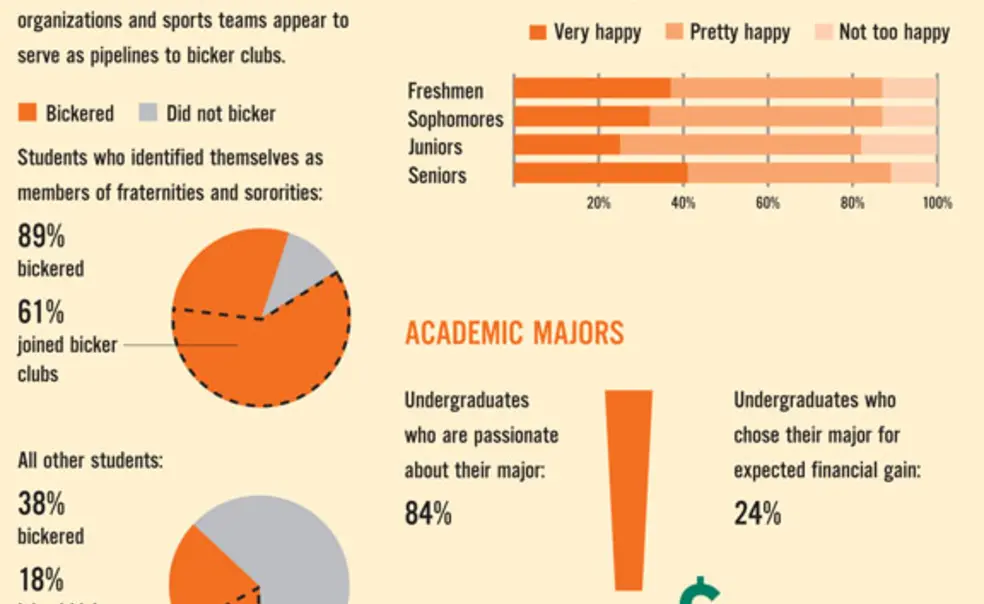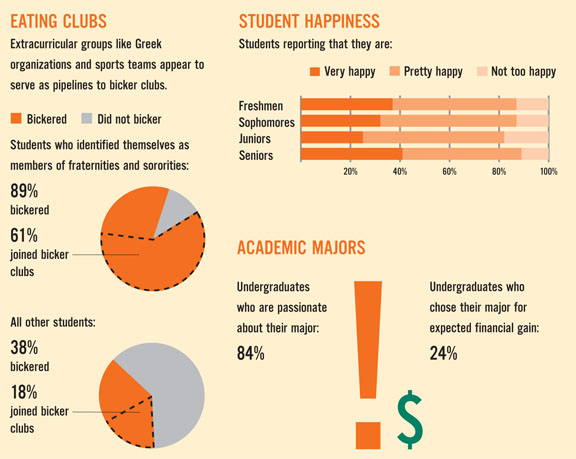USG survey links race, income to students' academic, social life
The social and academic experiences of Princeton students — and some of the affiliations that students make — seem to be linked to their family incomes and racial backgrounds, according to the results of a Undergraduate Student Government survey conducted last spring.
More than 1,100 undergraduates completed the online survey, which asked students about their level of happiness, choice of dining option, and selection of major.
Eating clubs disproportionately attract white students from wealthy family backgrounds, the survey found. But according to a USG release, dining options appear to have become “more financially neutral” since the University added four-year residential colleges and financial aid for eating club members. (The USG also surveyed students in the spring of 2007, before the aid program and four-year residential colleges began.)
The 2009 survey showed that African-American students were significantly less happy than their peers, echoing findings of the earlier survey. Among all students who said they were “not very happy,” academic demands, lack of sleep, and social isolation were the most commonly cited reasons.
“The problems are very broad,” said Connor Diemand-Yauman ’10, the outgoing USG president. “It’s difficult to think of creative ways to tackle these problems because they have to do with campus climate, and those things aren’t easily changed.” But the survey results, he added, could be a “catalyst for real change on a personal level.”
The Daily Princetonian












No responses yet